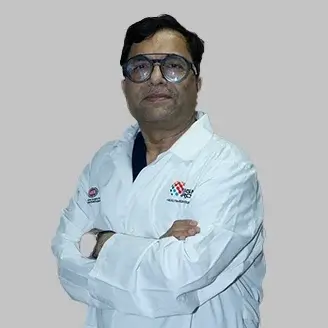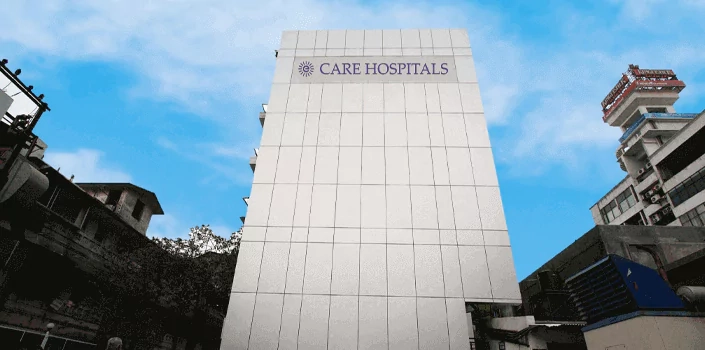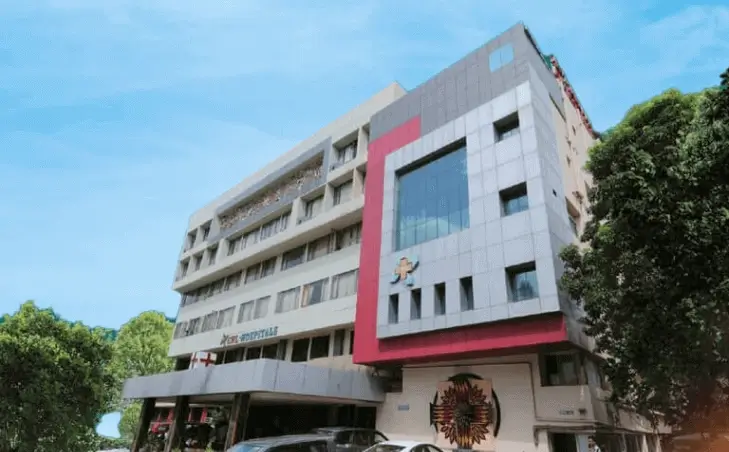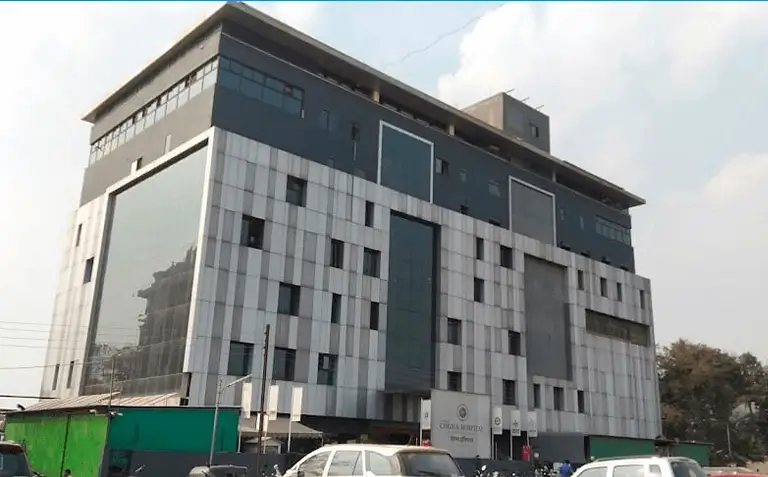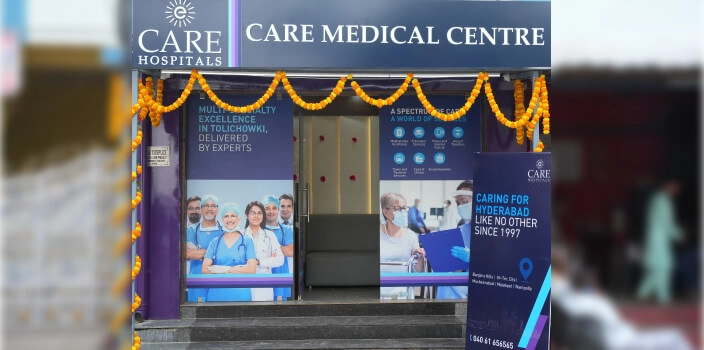-
Doctors
-
Specialities & Treatments
Centre of Excellence
Specialties
Treatments and Procedures
Hospitals & Directions HyderabadCARE Hospitals, Banjara Hills CARE Outpatient Centre, Banjara Hills CARE Hospitals, HITEC City CARE Hospitals, Nampally Gurunanak CARE Hospitals, Musheerabad CARE Hospitals Outpatient Centre, HITEC City CARE Hospitals, Malakpet
HyderabadCARE Hospitals, Banjara Hills CARE Outpatient Centre, Banjara Hills CARE Hospitals, HITEC City CARE Hospitals, Nampally Gurunanak CARE Hospitals, Musheerabad CARE Hospitals Outpatient Centre, HITEC City CARE Hospitals, Malakpet Raipur
Raipur
 Bhubaneswar
Bhubaneswar Visakhapatnam
Visakhapatnam
 Nagpur
Nagpur
 Indore
Indore
 Chh. Sambhajinagar
Chh. SambhajinagarClinics & Medical Centers
Book an AppointmentContact Us
Online Lab Reports
Book an Appointment
Consult Super-Specialist Doctors at CARE Hospitals

Best Hospitals for Hepatectomy Surgery in Hyderabad
- Advanced Technology
- Shorter Hospital Stay
- Pre & Post-Operative Care
- All Insurance Accepted

Chat With Our Experts
Get second opinion on Whatsapp
25 lakhs+
Happy Patients
Experienced and
skilled surgeons
17
Health Care Facilities
Top most Referral Centre
for Complex Surgeries
Advanced Hepatectomy Surgery
Hepatectomy surgery plays a significant role, especially when patients have liver cancer, benign tumours, liver trauma, or colorectal cancer metastases. Hepatectomy is a surgical procedure involving the partial or complete removal of the liver. Modern medicine recognises it as a vital treatment option. The procedure needs to be thought over carefully. This piece explores what patients need to know about this life-changing procedure. It covers various types of hepatectomy and sets clear recovery expectations.
Why CARE Group Hospitals is Your Top Choice for Hepatectomy Surgery in Hyderabad
CARE Hospitals’ surgical excellence comes from its world-renowned HPB and liver surgeons, who are experts in complex hepatobiliary surgeries. These expert surgeons use both traditional open surgery and minimally invasive laparoscopic procedures, depending on each patient's needs.
The hospital shows its steadfast dedication to liver surgery advancement through:
- Advanced infrastructure and technology
- 24/7 patient support system
- Complete educational programmes for patients
- Research participation to develop new surgical techniques
Best Hepatectomy Surgery Doctors in India


Cutting-edge Surgical Innovations at CARE Hospital
CARE Hospitals has made remarkable progress in liver surgery techniques. The surgical team blends traditional methods with modern technology to perform complex hepatectomy procedures. Their dedication to excellence is evident in their research on developing new procedures and technologies.
The surgical department provides three main approaches for hepatectomy:
- Traditional open surgery for complex cases requiring direct access
- Laparoscopic procedures through small incisions
- Robotic-assisted surgery with greater precision
CARE's success with hepatectomy procedures comes from several crucial elements:
- Advanced perioperative care protocols
- Better anaesthesia techniques
- Improved post-operative management
- Blood-sparing surgical methods
Conditions for Hepatectomy Surgery
- This surgical procedure helps patients with primary liver cancers like hepatocellular carcinoma and cholangiocarcinoma.
- The surgery also treats secondary liver cancers that spread from colorectal areas, breast tissue, or neuroendocrine tumours.
- Hepatectomy helps with many non-cancerous conditions too. These include:
- Gallstones within intrahepatic ducts
- Adenomas (primary benign tumours)
- Liver cysts
- Inherited disorders like Wilson's disease and Hemochromatosis
- Viral infections, including Hepatitis A, B, and C
- Autoimmune conditions such as primary biliary cholangitis
Types of Hepatectomy Surgery Procedures
Major hepatectomy removes more than three liver segments. Here are the most common major procedures:
- Right Hepatectomy: This procedure removes segments 5, 6, 7, and 8 of the liver
- Left Hepatectomy: Surgeons remove segments 2, 3, and 4 during this operation
- Extended Right Hepatectomy: Also known as right trisegmentectomy, this procedure combines the removal of segment 4 with segments 5, 6, 7, and 8
- Extended Left Hepatectomy: This operation involves removing segments 2, 3, 4, 5, and 8
Minor hepatectomy procedures remove fewer than three segments. These operations include:
- Segmental Hepatectomy: Involves removing one or more functional anatomic liver segments
- Non-anatomical Wedge Resection: Surgeons perform resections across anatomical planes
- Left Lateral Sectionectomy: Removes segments 2 and 3 of the left lateral section
- Right Posterior Sectionectomy: Targets segments 6 and 7 of the right posterior section
Know the Procedure
A successful hepatectomy needs careful preparation and following protocols throughout the surgical experience.
Pre-surgery Preparation
The medical team needs a complete picture of the patient's physical status and liver function before surgery. They review several key areas:
- Imaging tests like CT scans and MRIs that show detailed liver conditions
- Blood tests to check liver function
- Liver biopsy in select cases
- Fasting and bowel preparation are as per the surgeon's advice.
Hepatectomy Surgical Procedure
The surgery starts with general anaesthesia. In open surgery, surgeons often use a transversus abdominis plane nerve block to manage post-operative pain. The surgery follows these steps:
- Making planned incisions for surgical access
- Checking the abdominal cavity to confirm resectability
- Using ultrasound guidance to map tumours precisely
- Controlling blood vessels with metallic clips or staplers
- Using ultrasonic energy devices to separate tissue
- Removing the diseased liver segment and bleeding control through advanced techniques like electrocautery or hemostatic agents
- Reconstruction of the bile duct, if necessary
- After carefully checking the surgical area, doctors close the incision with staples or sutures.
Post-surgery Recovery
Patients need careful monitoring in intensive care right after surgery. The medical team focuses on:
- Managing fluid and electrolyte balance
- Checking renal function
- Controlling blood glucose levels
- Providing proper nutritional support
Patients usually stay in the hospital for about a week. During this time, they slowly start eating solid food and moving more.
Traditional surgery patients recover fully in 4-8 weeks, while laparoscopic surgery patients often recover faster.
Risks and Complications
- Major Complications: The biggest risk after liver hepatectomy is liver failure. Patients show reduced liver function through increased international normalised ratio and hyperbilirubinemia after day 5 post-surgery. Several factors lead to liver failure, including:
- Small remnant liver volume
- Vascular flow disturbances
- Bile duct obstruction
- Drug-induced injury
- Viral reactivation
- Severe septic conditions
- Bile leakage affects 4.0% to 17% of patients. Damage to bile ducts causes this complication as bile collects inside the abdomen.
- Additional Risk Factors: Liver complications often cause acute renal failure, which can lead to hepatorenal syndrome. Portal flow resistance at the sinusoidal level causes ascites, a common complication. Surgical site infections develop in three ways:
- Superficial infections
- Deep incisional infections
- Organ/space infections
- Other Notable Complications
- Patients might face these post-operative challenges:
- Pleural effusion that causes chest pain and breathing difficulties
- Deep vein thrombosis from long periods of bed rest
- Gastrointestinal tract bleeding, usually from stress ulcers
- Intraperitoneal haemorrhage
Benefits of Hepatectomy Surgery
Clinical studies show remarkable benefits of hepatectomy surgery for treating liver conditions of all types. Minimally invasive hepatectomy procedures offer these clear advantages:
- Reduced blood loss during surgery
- Quicker resumption of oral diet
- Lower pain medication requirements
- Shorter hospital stays
Insurance Assistance for Hepatectomy Surgery
Health insurance providers in India give critical illness coverage for liver-related surgeries. Our patient coordinators will help you with the following:
- Verify pre-authorisation for the hepatectomy surgery
- Explain detailed expenses regarding the procedure
- Submit claims promptly with complete documentation
- Wellness programmes
Second Opinion for Hepatectomy Surgery
Getting a second opinion for hepatectomy surgery is a vital step toward the best treatment outcomes. Doctors agree that this major liver surgery requires high-level expertise and has significant risks. Research shows that second opinions often confirm original diagnoses or uncover significant differences that change treatment plans. This helps patients make better decisions about their care pathway.
A detailed second opinion evaluation includes:
- Review of medical history and diagnostic tests
- Assessment of current treatment plans
- Discussion of alternative therapeutic options
- Evaluation of potential risks and benefits
- Analysis of long-term survival prospects
Conclusion
Hepatectomy surgery is a vital treatment option for liver conditions. Patients now have hope thanks to impressive survival rates and advanced surgical techniques. CARE Hospitals and other specialised centres have made this complex procedure safer.
Doctors choose between traditional open surgery, laparoscopic procedures, or robotic-assisted techniques based on each patient's condition. Expert surgical teams and careful patient selection lead to better outcomes. Modern surgical advances have opened new possibilities for patients who couldn't get surgery before.
Hepatectomy Surgery Hospitals in India
-
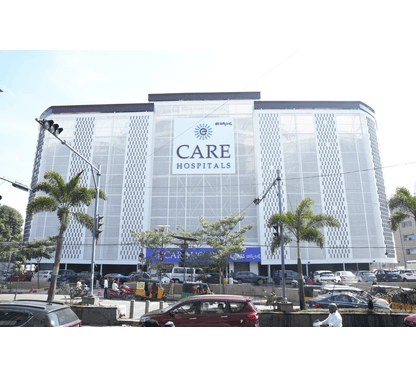
CARE Hospitals, Banjara Hills, Hyderabad
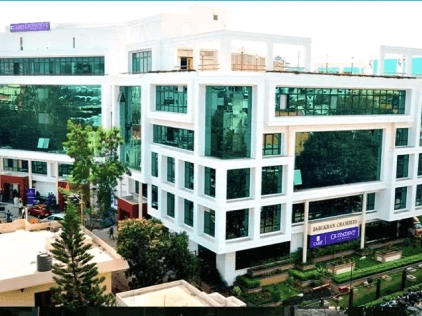
CARE Hospitals Outpatient Centre, Banjara Hills, Hyderabad
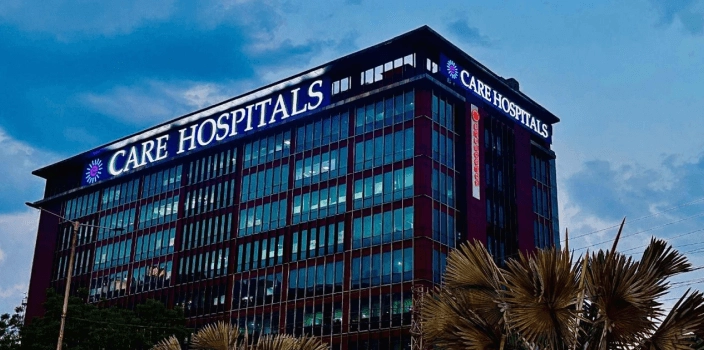
CARE Hospitals, HITEC City, Hyderabad
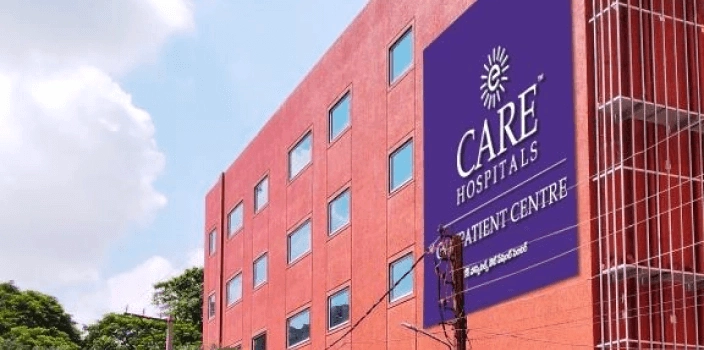
CARE Hospitals Outpatient Centre, HITEC City, Hyderabad
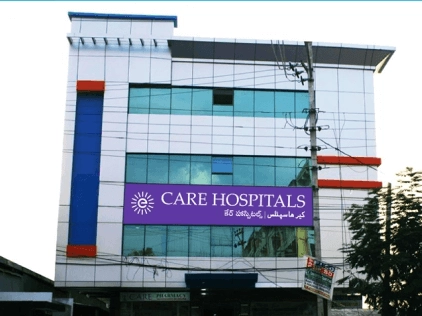
Gurunanak CARE Hospitals, Musheerabad, Hyderabad

CARE Hospitals, Nampally, Hyderabad
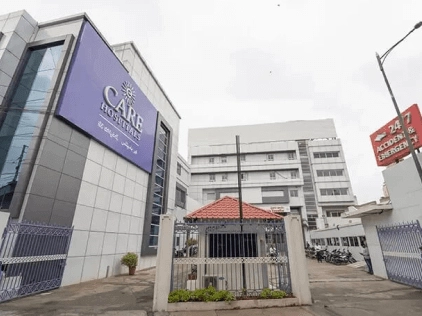
CARE Hospitals, Malakpet, Hyderabad
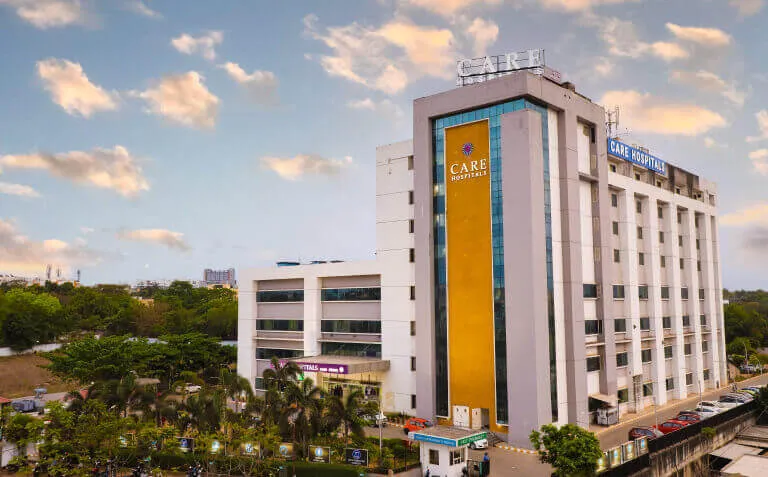
CARE Hospitals, Bhubaneswar
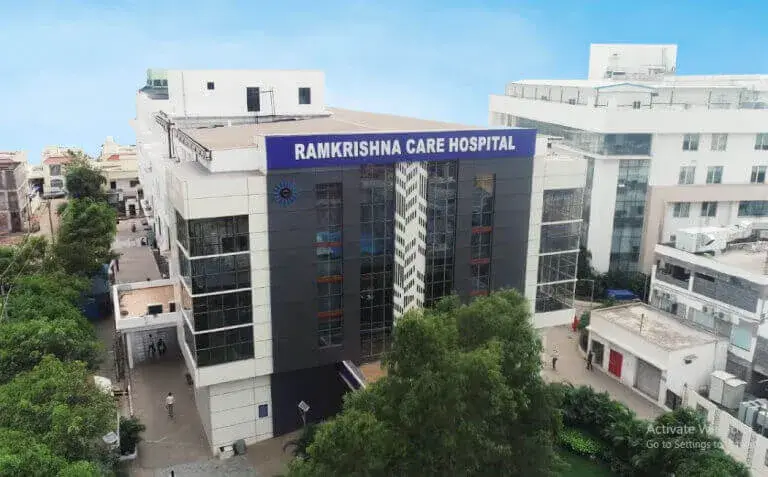
Ramkrishna CARE Hospitals, Raipur
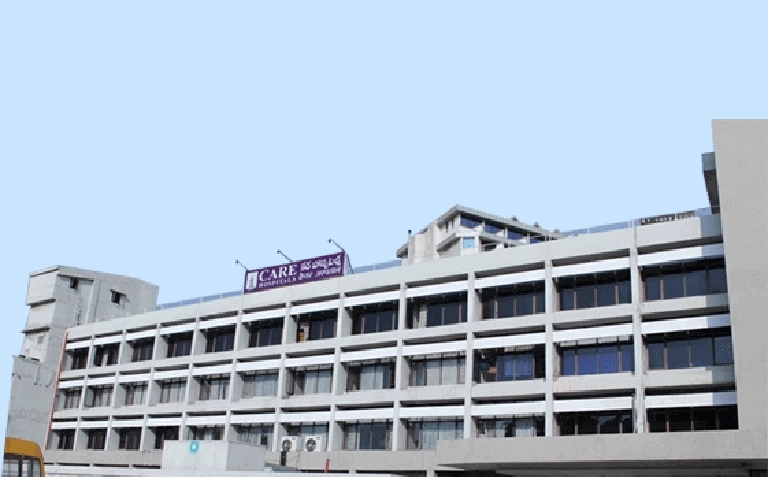
CARE Hospitals, Ramnagar, Visakhapatnam
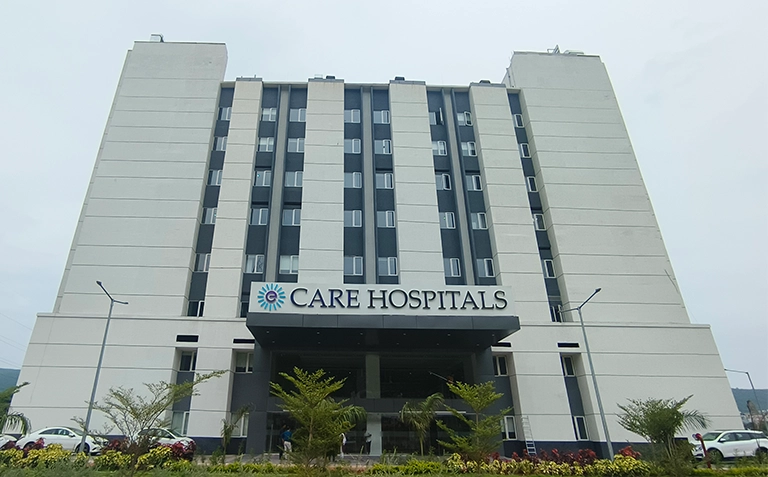
CARE Hospitals, Health City, Arilova
Related Surgeries
- Best Hospital for Thoracotomy Surgery in Hyderabad
- Best Hospital for Hiatus Hernia Surgery in Hyderabad
- Best Hospital for Incisional Hernia Surgery in Hyderabad
- Best Hospital for Pilonidal Sinus Surgery in Hyderabad
- Best Hospitals for Hepatectomy Surgery in Hyderabad
- Best Hospitals for Acute Appendicitis Surgery in Hyderabad
- Best Hospital for Thymectomy Surgery in Hyderabad
- Best Hospital for Epigastric Hernia Surgery in Hyderabad
- Best Hospital for Gastric Band Surgery in Hyderabad
- Best Hospital for Anorectal Surgery in Hyderabad
- Best Hospital for Inguinal Hernia Surgery in Hyderabad
- Best Hospital for Pilonidal Cystectomy Surgery in Hyderabad
- Best Hospital for Splenectomy Surgery in Hyderabad
- Best Hospital for Rectopexy Surgery in Hyderabad
- Best Hospital for Hemorrhoidectomy in Hyderabad
- Best Hospital for Esophagectomy Surgery in Hyderabad
- Best Hospital for Cervical Lymph Node Dissection Surgery in Hyderabad
Frequently Asked Questions
A hepatectomy removes part or all of the liver through surgery. Doctors use this treatment to address both benign and malignant liver conditions.
Hepatectomy surgery usually takes two to six hours. The exact time depends on the complexity of the surgery and the amount of liver tissue removed.
The main risks include:
- Infections in surgical sites or urinary tract
- Bile leaks from damaged ducts
- Pleural effusion that causes chest discomfort
- Blood clots due to extended bed rest
- Kidney issues that need hydration
- Liver failure if there's not enough working liver tissue left
Your recovery time depends on the surgical method used. Traditional open surgery requires four to eight weeks of recovery, while laparoscopic procedures help patients recover faster.
Modern hepatectomy shows impressive safety results. Specialised centres with experienced surgical teams achieve even better success rates.
Most patients feel sore in their abdomen for one to two weeks after surgery. Each person experiences different levels of pain, but most patients feel better as they heal.
Yes, hepatectomy is a major surgery as it involves removing part or all of the liver.
If complications arise after hepatectomy, doctors may manage them with medications, drainage, or additional procedures. Close monitoring ensures timely intervention for a safe recovery.
Many insurance plans cover it for liver disease or cancer, but prior authorisation and documentation are often required for approval.
Hepatectomy is performed under general anaesthesia, ensuring the patient remains unconscious and pain-free.
After hepatectomy surgery, doctors generally advise:
- Avoid lifting heavy weights for at least 6 weeks
- Strictly avoid alcohol and smoking
- Minimise greasy or processed foods
- Stay hydrated to support liver function and recovery
- Follow prescribed medications and avoid self-medic
You can eat after liver surgery. Doctors generally advise to start with small, nutritious meals. Avoid fatty, processed foods and alcohol. A liver-friendly diet rich in proteins and fluids aids recovery.
Still Have a Question?





